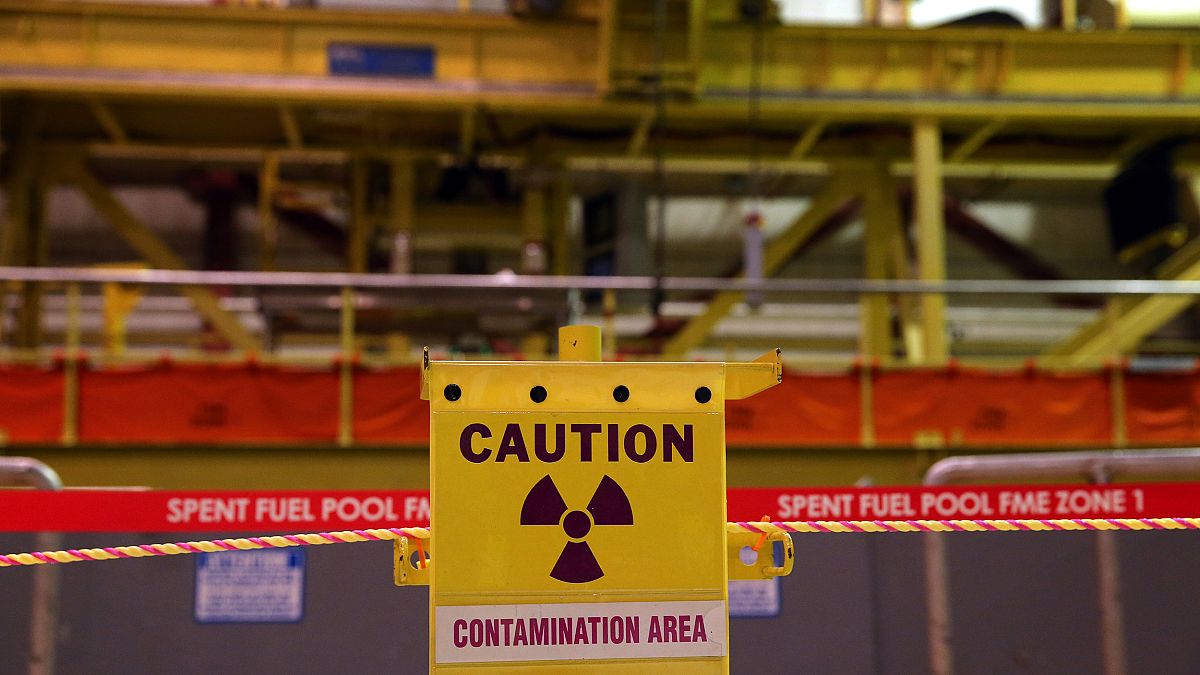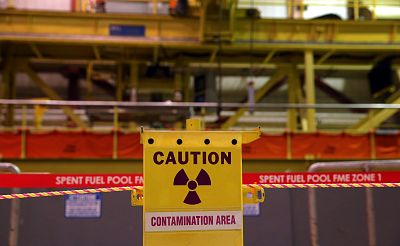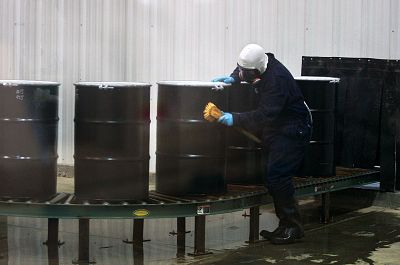Besides killing people with radiation, a dirty bomb would spread panic, prompt evacuations, require clean-up and undermine the economy, says a new report.
WASHINGTON — The Nuclear Regulatory Commission is failing to recognize the full range of dangers posed by a potential dirty bomb attack and needs to take more action to secure high-risk radioactive material, according to a government watchdog report released Thursday.
In assessing the possible effect of aradioactive dirty bomb detonated in an American city, the U.S. nuclear regulator has only focused on the possible health effects caused by the spread of radiation, the Government Accountability Office report said. But the NRC has not taken into account the potential consequences of a panic-driven evacuation and costly decontamination effort, according to the report.
"NRC's regulatory approach in many ways is based on the idea that a dirty bomb would not be a high consequence event," said David Trimble, director of the National Resources and Environment office at the GAO.
"Their view of what the risk is is very circumscribed, it's very narrow."
A dirty bomb uses a conventional explosive combined with radioactive material to spread radiation over a wider area, andsome terrorist groups have sought to construct such a device over the years.
Rather than deaths or harm caused by radiation, the most significant impact of a radioactive dirty bomb would be its disruptive effect, by spreading panic, prompting evacuations, requiring clean-up work and undermining economic activity, said the report, citing experts convened by the National Academy of Sciences as well as other studies.
A chaotic evacuation could cause more deaths than any radiation released in an attack, and the results of the disruption and contamination could cause billions of dollars in damage, the report said.
"Few deaths would occur due to the radioactive nature of the event," the report said. "However, significant social and economic impacts could result from public panic, decontamination costs, and the denial of access to infrastructure and property for extended periods of time."
The report cited the 2011 meltdown of the Fukushima Daiichi nuclear plant after an earthquake and subsequent tsunami, saying more people died from the evacuation process than from radiation releases or the effects of the natural disasters.
The NRC's staff operates under guidelines that require it to only evaluate the risk of a dirty bomb based on immediate deaths and other health effects of the radiation released.
"If you're using that as a criteria to regulate, you're kind of missing the boat," Trimble said.
The GAO also urged the nuclear agency to take additional measures to safeguard smaller quantities of high-risk radioactive material, arguing that even smaller amounts could still have major consequences in a dirty bomb incident.
The Nuclear Regulatory Commission disagreed with most of the report's findings, saying the GAO's view was based on unlikely scenarios and selected opinions from experts.
"The security and appropriate control of radioactive materials is a top priority for the NRC," the agency said in a response to the GAO, which was included in an appendix to the report.
The GAO report was based in part on a meeting of 18 experts across a range of fields arranged with the NRC and the National Academies of Sciences. But in its letter, the NRC said the GAO had relied on "selected aspects of the panel discussion to form the primary basis for its recommendations" and referred to "statements of one or two panel members to draw overarching conclusions."
The nuclear regulator disagreed with the report's reference to the Fukushima example on evacuations, arguing it was no equivalent to a possible dirty bomb scenario. In Fukushima, the nuclear power plant meltdown was accompanied by an earthquake and tsunami, which complicated evacuation efforts, the NRC said.
The NRC also rejected a GAO recommendation to bolster security measures for certain quantities of a radioactive material, americium-241, stored in close proximity, saying it had already taken sufficient steps.
The NRC said it seeks "to balance the need for the protection of radioactive materials with their availability for beneficial uses in the medical, academic, and industrial environments."
The Nuclear Regulatory Commission has come under frequent criticism over the decades from lawmakers, environmental and watchdog groups that it is overly deferential to the nuclear industry. The NRC's supporters have rejected the criticism as an attempt to tarnish nuclear power as a viable energy source.
Over the past decade, the GAO has previously taken the NRC to task for how it oversees security measures for radioactive material. The NRC accepted the findings in those audits and took action to tighten rules for organizations licensed to use radioactive materials for commercial, medical or research purposes.


